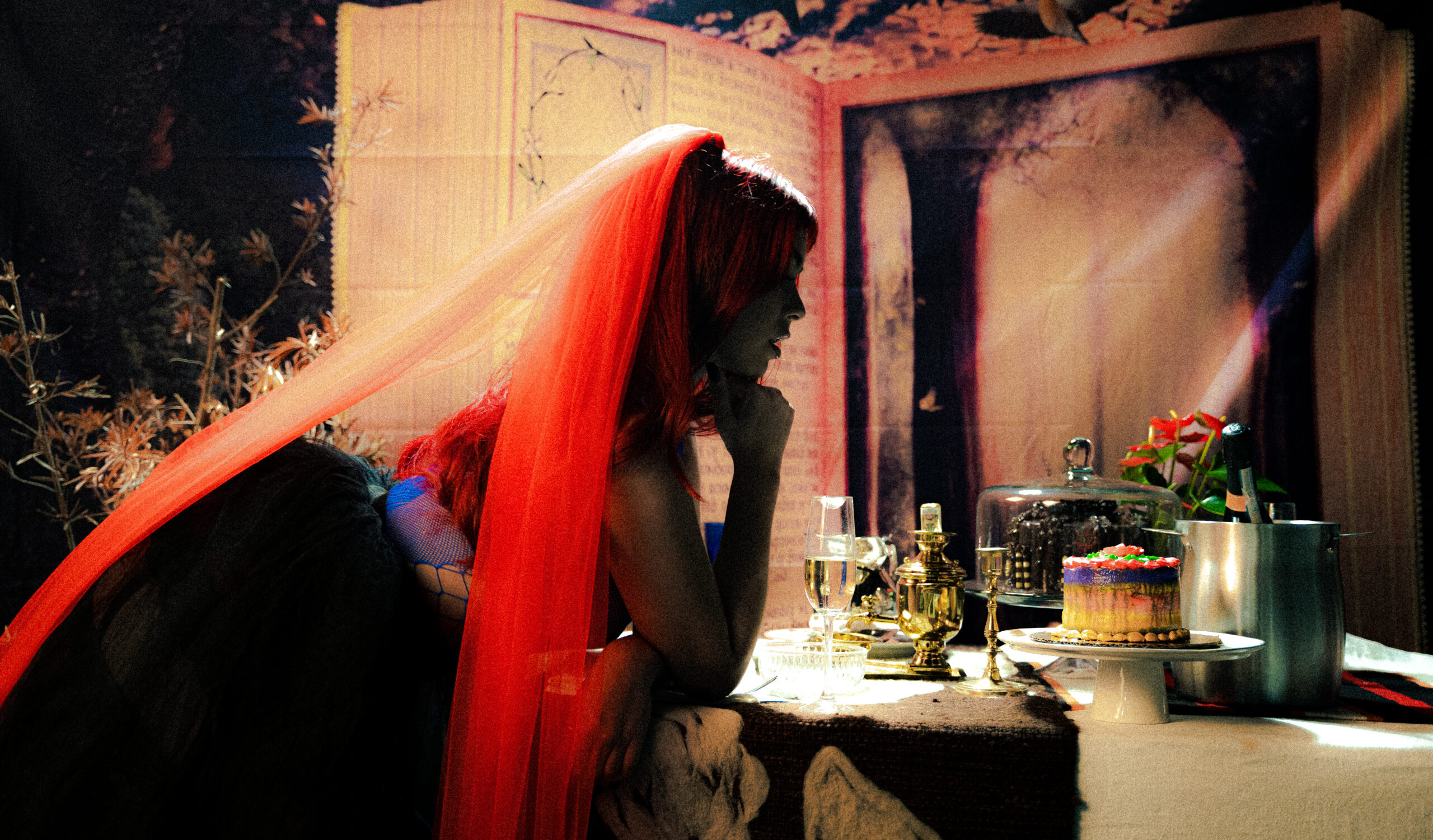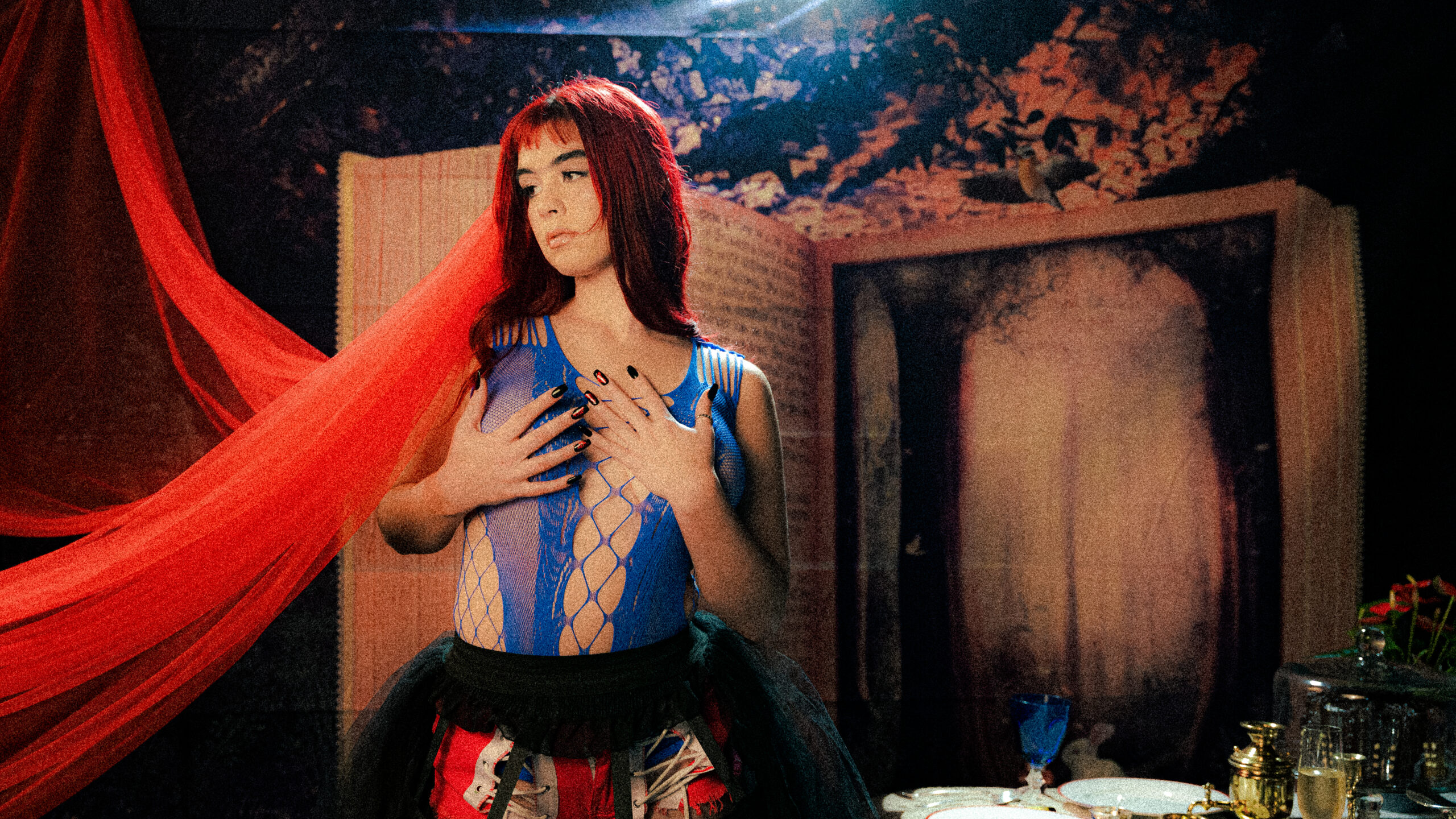Putting the sound of Venezuela on the map

MJ Nebreda’s music is not for the faint of heart – it takes real effort for our hips to catch up with the artist’s feverish grooves. From Boiler Room to III Points Festival, the Miami-based, Venezuala-born musician is taking the scene by the storm. Her new EP is an ode Raptor House – a genre born out of scorching Venezuelan underground club scene in the 90s – as Nebreda weaves the profound knowledge of her heritage into reimagined perreo-pop, electronic and reggaeton. The result: a bold, dizzying sound that is guaranteed to set any dancefloor on fire. Amor En Los Tiempos De Odio is nothing short of an eruptive introduction into Nebreda’s eclectic world and, naturally, we had to learn more.
Hello – great to be in touch – how are you today?
I’m doing amazing thank you!
Your new work, Amor En Los Tiempos De Odio is dedicated to Venezuelan music culture. Can you talk me through the significance of Changa Tuki (aka Raptor House) to yourself as an artist, and the ways it is hailed through your sound?
When I started releasing my music my family back in Venezuela first reaction to hearing it was to tell me that I was doing raptor house. I didn’t know what it was but the second I started to learn about it I just saw myself so identified with the hyper-ness of it all. I think that it’s a genre that hasn’t had the chance to popularise itself because of the crisis Venezuela has been in for the past twenty years. It could be for Venezuela what Dembow is for Dominican Republic and Reggaeton is for Puerto Rico. To me, it’s something that I feel connected to naturally.
Within this, however, there is a futurism – love songs beyond the ballads or slow-emotive betas – what inspired this take?
In the raptor house genre in general, there hasn’t been much exploration into what that genre can look like with lyricists on top. I wanted to just push myself to go there which ultimately also made the EP give its own take on it.
Amor En Los Tiempos De Odio has been described as a ‘GEN Z Latinx anthem’, but this feels like a family affair that could get anyone on their feet! How do you see your community/audience and what do you hope they take from this music?
I love that you say that because I really do try to make music for everybody. I definitely don’t make music for children but everyone else I feel or at least I always hope to get them to groove to my songs. I just want people to feel good and have fun in this short life we have.
The EP has some amazing names on it – Nick León, DJ Baba for example – what was it like working with these creatives? What do you look for in an artistic collaboration?
It was a really an amazing experience and really the whole process was very natural. Both Nick and DJ Baba are great human beings. DJ Baba as the pioneer and creator of the genre really got to give me his blessing with the whole EP but also we were able to really work back and forth on the Frida Kahlo track which was a beautiful experience. For me it was important that their energy was seen through the songs.
The visuals are also beautiful, the red veil with the bodysuit. How important is visual identity to your artistry?
Thank you! I’m exciting to keep working on my visual identity as I progress sometimes it can be a little overwhelming as I really like to keep most of my focus on being better at making music and DJing. This being said, I like to use a lot of symbolism in my imagery usually something that can get a message across without having to do too much.
Can you tell me about the visual symbolism of Ahora Empezó?
I was trying to deconstruct what would be my major pop artist moment and kind of water it down into this studio shoot scene. The EP in general takes place in another moment in space and time and the visuals are of somebody in that world kind of trying to be a pop star. Behind me in the background is storybook where I’m basically foreshadowing my storytelling career.
There is also a level of humour in some of your work that feels somewhat reminiscent of the early work of Doja Cat. Is this an important element of your practice?
The early work of Doja Cat is amazing. I have been tuned into what she was doing since those days so that’s a huge compliment! I’ve noticed it is, I like to be real and have fun and find that the silliest things can hold so much meaning to me.
I can’t wait to see what is on the horizon for you – any goals for the coming year?
I’m excited to just keep releasing music and keep discovering things as a producer, a writer and a DJ. My goal is to release my three projects by the end of next year, so basically I will be working non-stop until 2024!

Images courtesy of MJ Nebreda
Words by Grace Powell